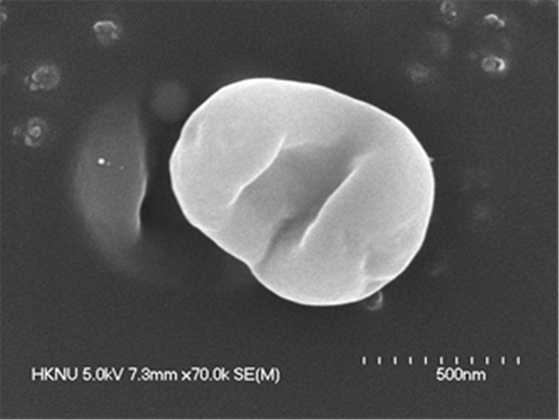
A new bacteria that breaks down methane into alcohol has been discovered. A scanning micrograph of Methylocistis MJC1. Materials National Institute of Biological Resources
Two new microorganisms that decompose methane, a greenhouse gas, have been discovered.
The National Institute of Biological Resources and KAIST Professor Seok-Hwan Yoon’s team announced on the 6th that they discovered two strains capable of decomposing methane gas in Mujechi Wetland located in Ulju-gun, Ulsan.
The bacteria discovered this time are’Methylomonas JS1′ and’Methylocystis MJC1′. After decomposing methane into methanol, it is used as an energy source, which is also called methane autogenous bacteria.
Greenhouse gas that is 21 times stronger than carbon dioxide… Will germs be the answer

Methanobacteria. Materials National Institute of Biological Resources
The researchers discovered two new strains while collecting soil from Ulsan Mujechi Marsh and analyzing the bacteria that live there. Mujechi Wetland is a’peat wetland’ located on top of a mountain. Plant debris is decomposed by anaerobic bacteria under water with the supply of oxygen blocked to produce methane, which is a good condition for bacteria that grow methane as nutrients to live in it.
Methane (CH4) is a gas in which four hydrogens are bonded to one carbon. It is produced in the process of’anaerobic decomposition’ in which plants such as grasses are decomposed without oxygen, and is also a major component of cattle fart.
According to the Intergovernmental Council on Climate Change (IPCC), it is a representative greenhouse gas with 21 times the effect of causing warming than carbon dioxide, which has the same carbon. In terms of reducing greenhouse gases, research is being conducted around the world to use methane as a raw material for methanol, organic acids, and bioplastics using methane magnetizing bacteria.
“It is very important to understand the role of microorganisms involved in the methane cycle to respond to the climate crisis,” said Bae Yeon-jae, head of the National Institute of Biological Resources.
It breaks down methane, breaks down plastics
The strain discovered this time has the ability to decompose not only methane but also vinyl chloride, a raw material for PVC. Researcher Kim Soon-ok of the National Institute of Biological Resources said, “Methylosinus trichoporium OB3b, which was previously known to have the ability to decompose vinyl chloride, was the most active at pH 7-8, which is close to neutral, but the actual environment for decomposing vinyl chloride. “Since it is close to acid, it was not suitable for use.”
Reporter Kim Jeongyeon [email protected]
![]()
